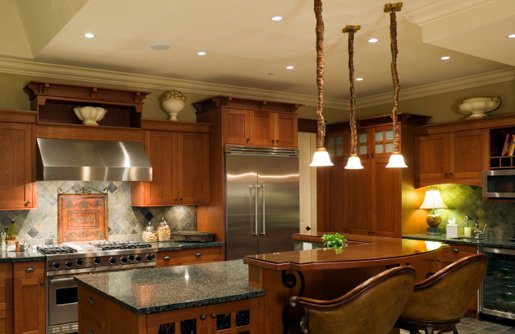Electrical Safety Tips Every Homeowner Should Know

As a homeowner, your top priority is keeping your family and property safe. While you might focus on alarms, locks, or fire extinguishers, there’s another critical safety area that often goes overlooked: your home’s electrical system. Electricity powers our lives, but it can also pose serious risks if not handled with care. At Astronelectric, we’re here to help you stay safe with practical, easy-to-follow tips that protect your home and loved ones.
1. Avoid Overloading Outlets
We’ve all been there—juggling phone chargers, lamps, TVs, and kitchen gadgets all plugged into a single outlet. Overloading outlets is one of the most common causes of electrical fires. Here’s how to avoid it:
- Use power strips wisely: Opt for surge-protected power strips instead of daisy-chaining multiple extension cords.
- Follow the “one appliance per outlet” rule: High-wattage devices like space heaters, microwaves, or air conditioners should always have their own dedicated outlet.
- Watch for warning signs: If an outlet feels warm, emits a burning smell, or sparks, unplug devices immediately and call a licensed electrician.
2. Check for Faulty Wiring
Old or damaged wiring is a leading cause of electrical fires, especially in older homes. Here’s how to spot trouble:
- Flickering lights: If your lights dim or flicker when you turn on appliances, it could signal overloaded circuits or faulty wiring.
- Discolored outlets: Brown or black marks around outlets indicate dangerous arcing or overheating.
- Frequent tripped breakers: If your circuit breaker trips often, your system may be struggling to handle demand.
If your home is over 20 years old, consider a professional electrical inspection to ensure wiring meets current safety standards.
3. Install GFCI Outlets in Wet Areas
Water and electricity don’t mix. Ground Fault Circuit Interrupter (GFCI) outlets are designed to shut off power instantly if they detect a ground fault, preventing shocks or electrocution. Install them in:
- Kitchens
- Bathrooms
- Laundry rooms
- Outdoor spaces
Test GFCIs monthly by pressing the “Test” button (power should shut off) and resetting them. Replace any that fail the test.
4. Childproof Your Outlets
Curious little fingers and uncovered outlets are a dangerous combination. Protect children with these steps:
- Use outlet covers: Simple plastic inserts block unused outlets.
- Upgrade to tamper-resistant outlets: These have built-in shutters that only open when equal pressure is applied (like plugging in a cord).
- Keep cords out of reach: Secure loose cords to baseboards or use cord organizers to prevent tugging or chewing.
5. Use Extension Cords Properly
Extension cords are meant for temporary use—not as permanent wiring. Misusing them can lead to overheating and fires.
- Never run cords under rugs: Trapped heat can melt insulation and ignite flammable materials.
- Choose the right cord: Outdoor cords are thicker and weatherproof; indoor cords are lighter. Match the cord’s rating to your device’s wattage.
- Retire damaged cords: Frayed wires or cracked insulation are fire hazards. Replace them ASAP.
6. Learn Your Breaker Box Basics
Your circuit breaker panel is your first line of defense against electrical hazards. Familiarize yourself with it:
- Label each circuit: Know which breaker controls which area of your home. This saves time during emergencies.
- Reset tripped breakers properly: Turn it fully “off” before flipping it back “on.” If it trips repeatedly, call an electrician—don’t ignore it!
- Never force a breaker: If a switch won’t stay reset, there’s a deeper issue that needs professional attention.
7. Keep Water Away from Electricity
Even small amounts of water can conduct electricity. Stay safe by:
- Keeping appliances away from sinks/tubs: Hairdryers, radios, and phones should always be used at a safe distance.
- Drying hands before touching outlets: Moisture increases shock risk.
- Avoiding wet hands and power tools: If you’re working outdoors after rain, wait until everything is dry.
8. Don’t DIY Electrical Repairs
While YouTube tutorials make everything look easy, electrical work is best left to licensed professionals. Tampering with wiring, outlets, or panels without training can result in:
- Electrocution
- Fire hazards
- Voided insurance claims
Always hire a certified electrician for installations, repairs, or upgrades.
9. Test Smoke Alarms Regularly
Smoke alarms are your early warning system for electrical fires. Test them monthly and replace batteries annually. Pro tip: Install alarms near bedrooms and on every floor of your home.
10. Know When to Call a Pro
Some electrical issues scream for expert help. Contact Astronelectric if you notice:
- Frequent breaker trips or blown fuses
- Buzzing sounds from outlets or panels
- Burning odors or scorch marks
- Outlets that shock you when touched
Stay Safe, Stay Empowered
Electrical safety isn’t about fear—it’s about awareness. By adopting these habits, you’ll reduce risks and create a safer home environment. At Astronelectric, we’re committed to helping you power your life confidently. If you’re unsure about your home’s electrical health, schedule an inspection with our team. Let’s keep your family safe, one outlet at a time.
For more tips or to book a service, visit us at https://astronelectric.com/.
About Astronelectric: We’re your trusted partner for all things electrical. From safety inspections to smart home upgrades, our licensed electricians ensure your home runs smoothly and safely.




